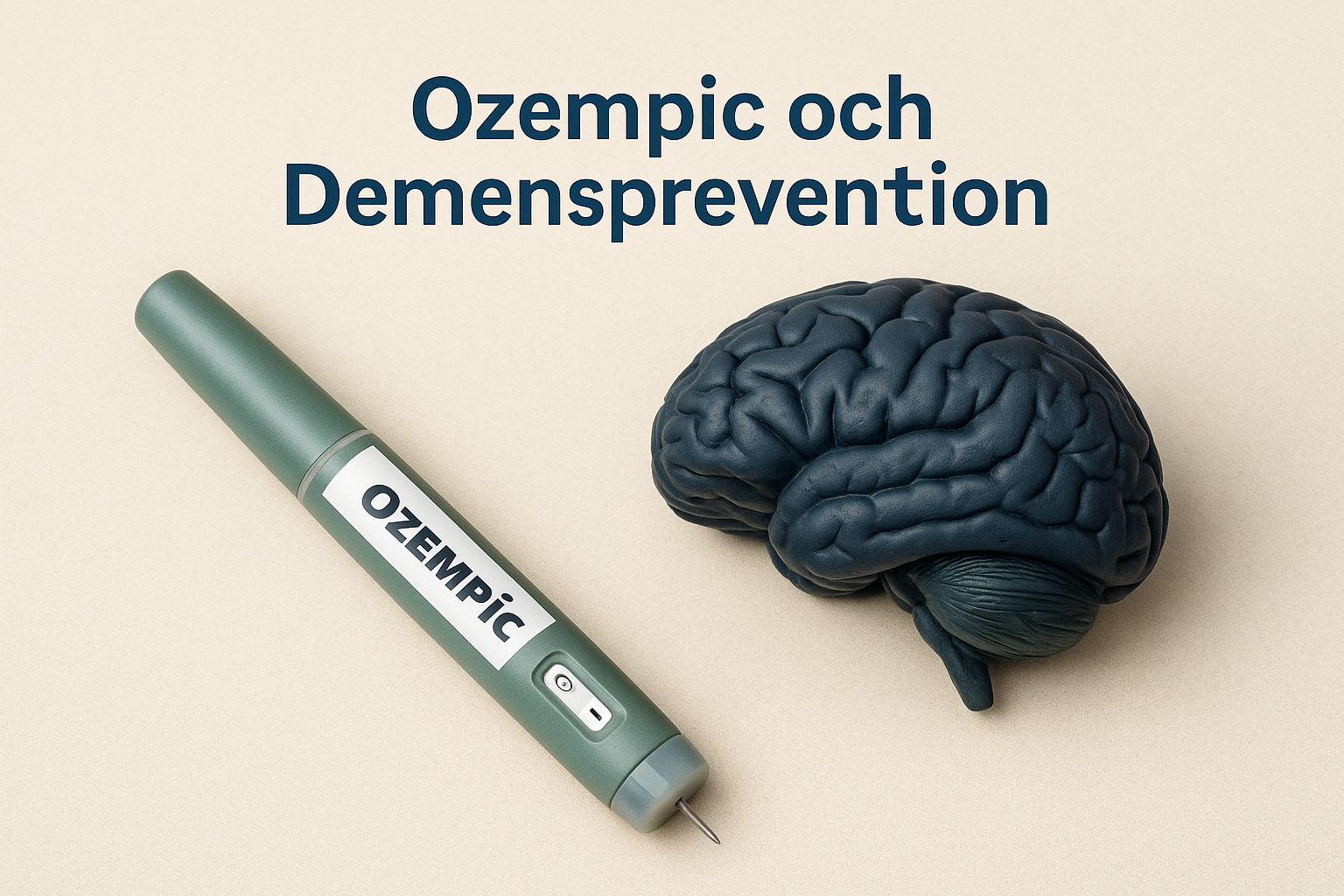 Booking
Booking
In recent years, there has been a paradigm shift in the way we look at cognitive impairment and dementia. From being something we could only diagnose and treat symptomatically, we are now seeing how both medication and lifestyle interventions can influence the course of the disease even before symptoms become severe.
One of the most talked about leads at the moment is semaglutide, better known under the brand name Ozempic - a drug currently used to treat type 2 diabetes and obesity. The first large studies are now investigating whether the same substance can also slow the progression of Alzheimer's disease. Results are expected by the end of 2025.
Semaglutide belongs to a class of medicines called GLP-1 receptor agonists. These substances:
Epidemiological data have suggested for several years that people using GLP-1 drugs have a lower risk of dementia than comparable groups.
This has attracted a lot of interest - but evidence from large, targeted clinical trials is still lacking. This is where the ongoing EVOKE trials with semaglutide come in.
If Ozempic is shown to slow down cognitive decline, even to a small extent, this could have major consequences at population level. Even small delays in the progression of the disease - for example 6-12 months - could be significant:
Dementia is currently one of the largest cost drivers in Swedish welfare - the annual cost to society is estimated at over SEK 80 billion, of which municipal care accounts for a large part. Postponing onset or deterioration could therefore have significant organizational and economic effects.
If semaglutide shows a clinically relevant effect, the question will quickly become how to implement the treatment.
Some likely scenarios could be as follows:
For primary care, this could mean a new role in the dementia care chain - more active screening, risk assessment and preventive treatment.
For municipalities, it could mean a new incentive to invest in early detection and prevention.
Although the results are not yet known, it is clear that interest in the prevention of cognitive impairment is growing rapidly. Semaglutide may not be the only solution - but if the results are positive, it could be a catalyst for a broader discussion on prevention in health and social care as well as the seed of new strategies where pharmacological and non-pharmacological prevention go hand in hand.
This is in line with developments in the cardiovascular field: first came lifestyle advice, then preventive medicines - and together they have fundamentally changed both the burden of disease and the organization of care.
The results of the global Alzheimer's trials with semaglutide are expected to be available in the last quarter of 2025. But already now, regions, municipalities and policy makers are discussing how best to equip care for early detection and prevention.
Whether the drug proves to have a large or moderate effect, it will raise questions about how to find the right patients, how different levels of care can interact effectively, and how future treatments can be integrated into existing flows and care processes.
So, if Ozempic is shown to slow cognitive decline, it's not just a new medical treatment - it's a system-changing opportunity.
An opportunity to move from managing dementia late in its course to acting early, preventing and planning care more proactively.
For municipalities, regions and healthcare providers, this could mean both better care for the individual and greater control over resource use in the future.
That's why it's wise to start following developments closely now - and start thinking preventively.